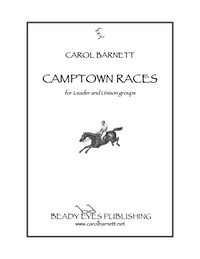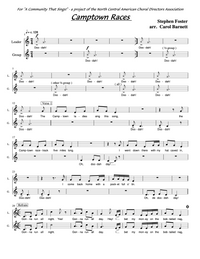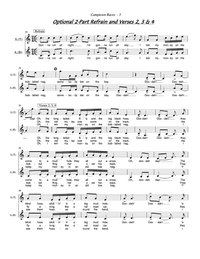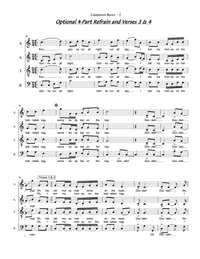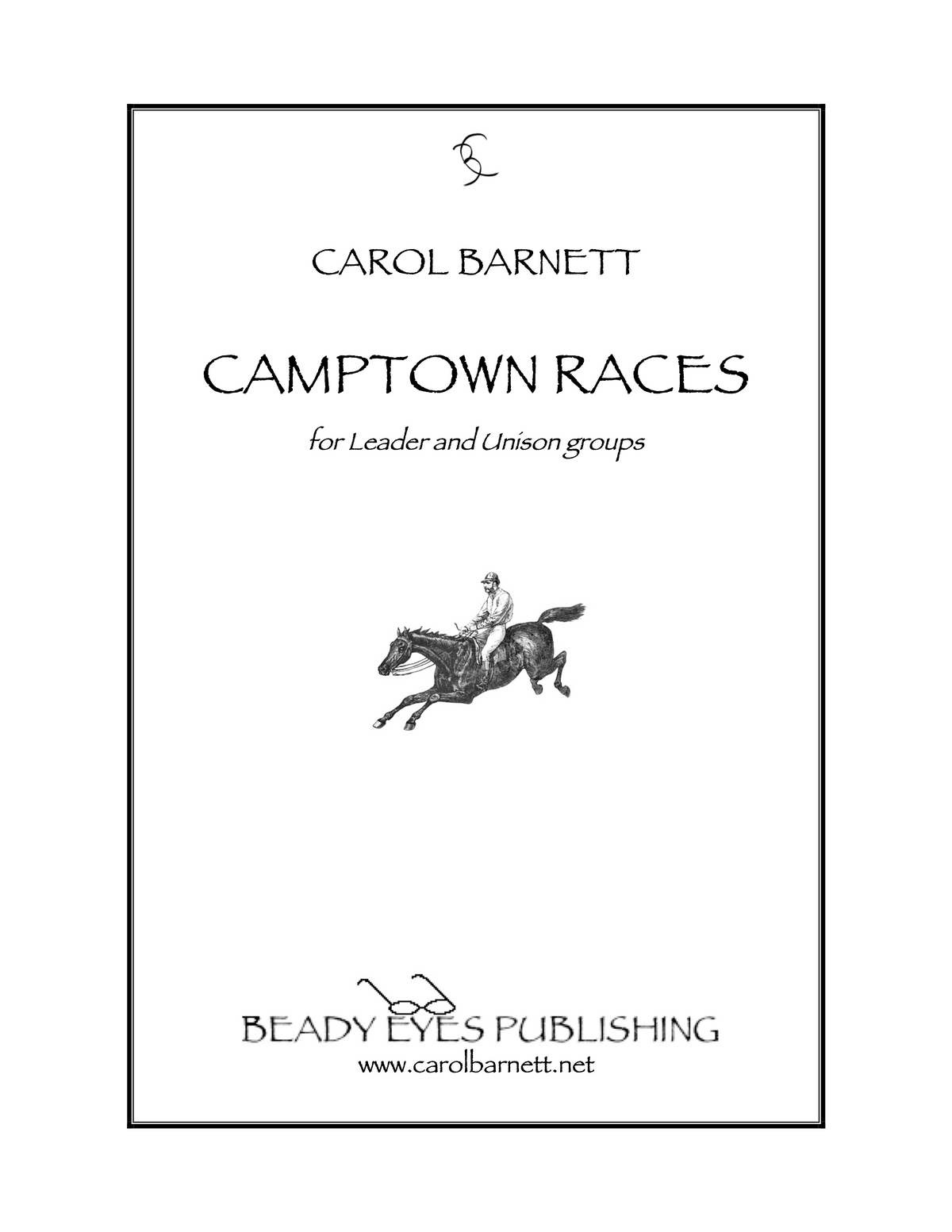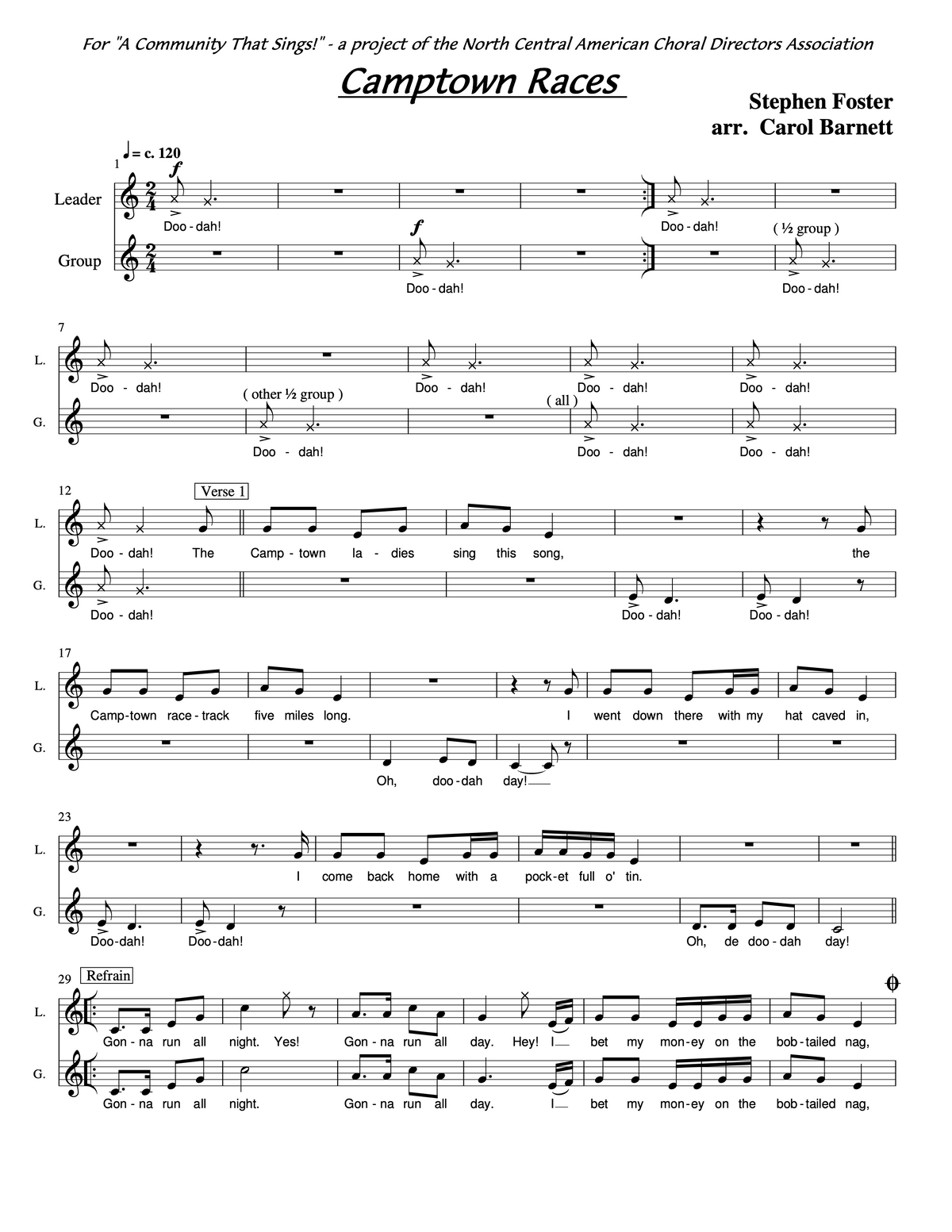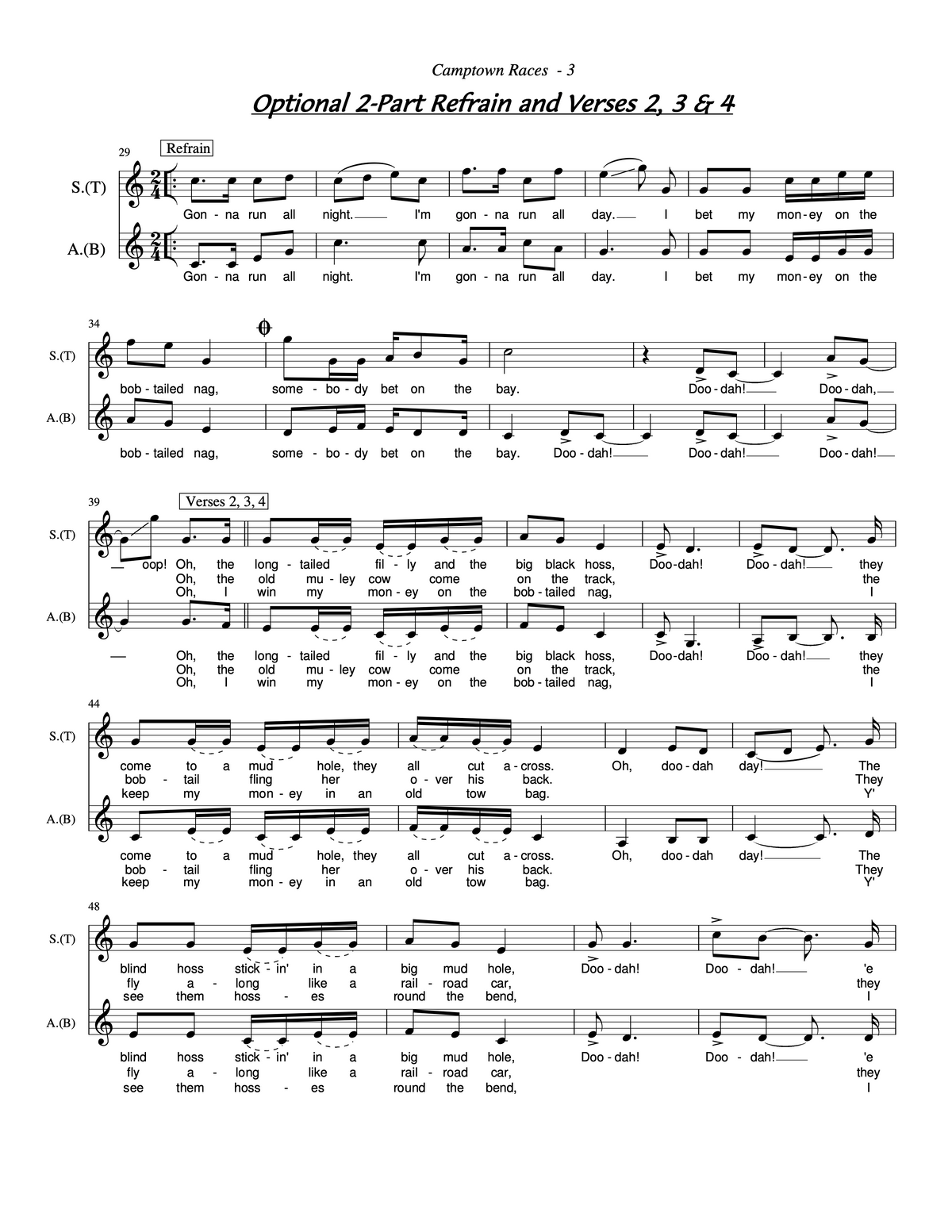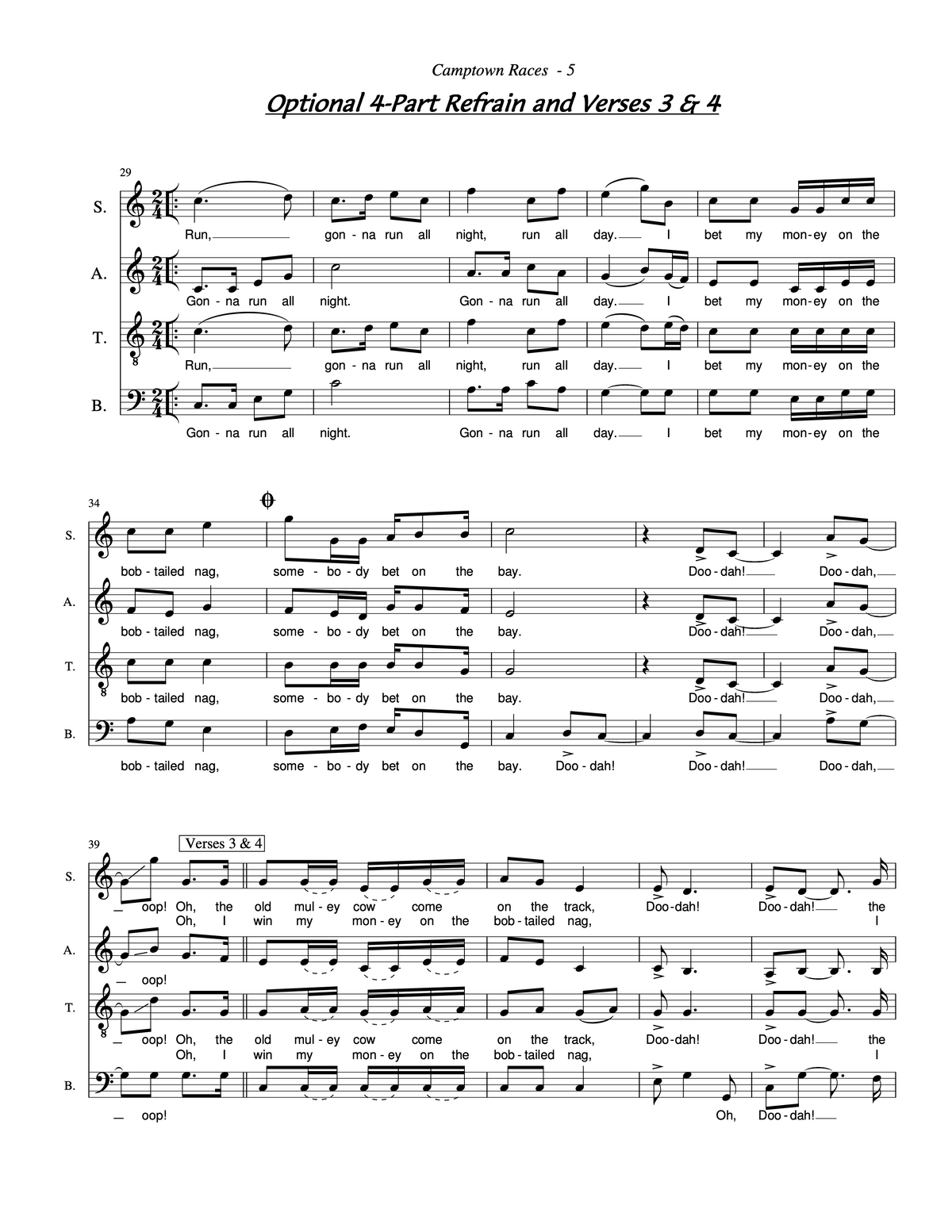Camptown Races – arrg. Carol Barnett
- Regular
- $1.99
- Sale
- $1.99
- Regular
- Unit Price
- per
Arranger: Carol Barnett
Text by: Stephen Foster
Instrumentation: leader and unison group (optional 2- and 4-part sections)
Duration: 3'
Date Written: 2009
Commissioned: "A Community that Sings!" North Central American Choral Directors Association
Premiered: March 4, 2010 at the North Central American Choral Directors Association Conference at Orchestra Hall, Minneapolis, MN
Composer’s note:
In 2009, Alice Parker, concerned about the waning tradition of singing folk songs together, persuaded the North Central American Choral Directors Association to commission A Community that Sings!, a collection of folk song arrangements, for their biennial conference. The deceptively simple requirements turned out to be unexpectedly challenging: “not complicated, interesting, musical, singable as a unison piece, optional harmony, optional obbligato instrument, relatively short…” I chose “Camptown Races,” and took the requirements to mean an arrangement that could be sung anywhere, without an accompanying keyboard instrument. Hence, the “Rules of the Game:”
- singers are divided into Leaders and Group
- Group members can become Leaders as soon as they feel comfortable doing so
- there are optional two- and four-part settings for the later verses and choruses
The original Camptown Races was first published by Stephen Foster (widely considered the father of American music or popular music) in 1850, who specifically tailored it for use in blackface minstrel shows, a disconcertingly popular form of entertainment in which white performers painted their faces brown and imitated what they thought of as Black mannerisms, culture, and behavior. In Foster’s case, these depictions were almost entirely fantasy; most sources say that Foster had only been to the South once in his later life. Nevertheless, Foster only found commercial success with his musical depictions of the South. His songs depict African-American slaves with a strange mix of condescension, mockery, and affection, reflecting a white society solidifying and reinforcing the idea of race in the time leading up to the civil war. Most modern performances of Foster’s work use modified lyrics and no performance should be given without including the historical context of the music.
Surprisingly, this particular song was probably not set in the South at all; Camptown was a town near Foster’s home in Pennsylvania. The “dialect” of the original lyrics, however, still suggest that Foster is portraying the speaker as African-American.

